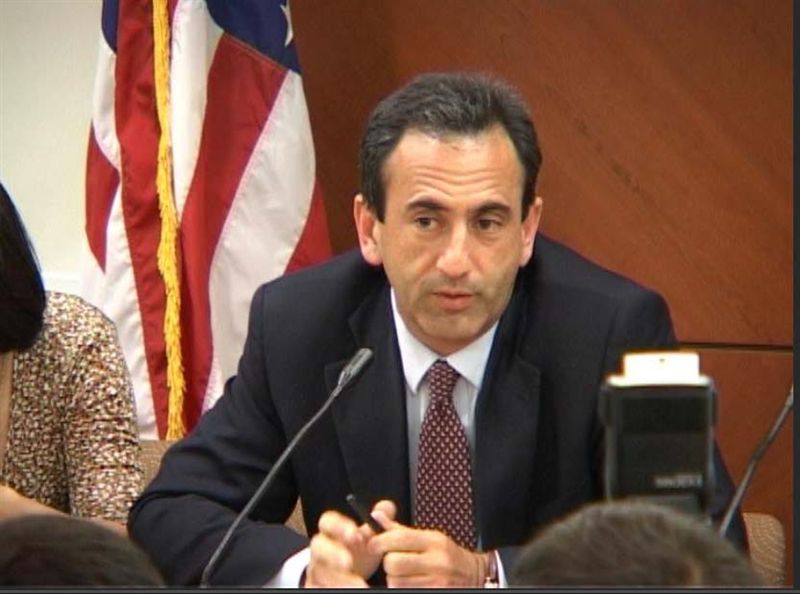
Russian Naval “Mission Creep” in the Black Sea
Publication: Eurasia Daily Monitor Volume: 6 Issue: 172
By:

Given the de facto Turkish-Russian naval condominium that has evolved in the Black Sea (EDM, September 17, 18), Turkey was in a position to be an influential factor in upholding maritime security in the Black Sea basin, thanks to its naval superiority and privileged relations with Russia. Thus far, however, Turkey displays little interest in the maritime security challenges arising beyond its own waters.
The unofficial condominium seems to translate into a division of the eastern Black Sea into de facto zones of Russian and Turkish action. Russia keeps a respectfully low naval profile in the southern part of the Black Sea in deference to Turkey. Meanwhile, Russia holds uncontested naval sway beyond its own maritime borders, in the waters around Ukraine’s Crimea and off Georgia’s Russian-controlled coastline, reaching to the vicinity of Poti (which Russian forces bombed and blockaded temporarily in August 2008). Meanwhile, Russia openly announced its intention to disregard the 2017 deadline for the withdrawal of the Russian Black Sea Fleet from Ukrainian territory in the Crimea (the withdrawal process would have to commence very soon, if the deadline is to be respected at all). Russia has changed maritime borders practically at will in the eastern Black Sea at Georgia’s expense and raises the prospect of doing so again in the Crimea at Ukraine’s expense.
NATO members Romania and Bulgaria, as well as NATO aspirants Georgia and Ukraine have long called for Operation Active Endeavor (OAE), a NATO-led maritime security undertaking, to be extended from the Mediterranean into the Black Sea. The Alliance tried hard to enlist Russian participation in OAE, mainly for political symbolism, but also reckoning with Russian acceptance of OAE in the Black Sea as a quid pro quo. Russia played hard to get, ultimately assigning several ships from its Black Sea Fleet to join OAE in the Mediterranean from 2006 to 2008. However, Russia and Turkey jointly blocked OAE’s extension into the Black Sea. And NATO and the United States continued to insist on this goal. Following the Russia-Georgia war, however, NATO rescinded its invitation to Russia from the Mediterranean OAE, in the context of the Alliance’s temporary suspension of joint military activities with Russia.
NATO’s Secretary-General, Anders Fogh Rasmussen, used his inaugural speech on September 18 to ask Russia to rejoin OAE. Without mentioning last year’s decision to rescind such an invitation -let alone the reasons behind it- Rasmussen said: "Maritime security is another area where I am sure that progress is possible in the short term, as both NATO nations and Russia face the common challenges of piracy and terrorism at sea. Again, we have an excellent basis on which to build…NATO and Russia have already cooperated successfully in OAE in the Mediterranean. NATO has invited Russia to renew her participation in this particular operation, and I hope that Russia will accept" (NATO press release, September 18).
The Secretary-General’s display of goodwill seemed to overlook the Russian fleet’s challenges to maritime security and international law in the Black Sea, which have actually escalated in recent weeks (EDM, September 17, 18). However, Rasmussen also said in his speech that he would support referring any thorny disagreements for frank discussion within the NATO-Russia Council, the next session of which is planned for September 30 under the new NATO leader. Failure to raise the Black Sea issue would signal to Russia -as well as to NATO’s own allies and partners- that maritime security and international law are not a priority in the Alliance’s immediate neighborhood. Russia could see a growing leeway for its Black Sea Fleet to breach the agreements with Ukraine or to protect Abkhazia’s maritime contraband. The incidents that might ensue could again complicate NATO’s relationship with Russia.
On September 12 U.S. Deputy Assistant Secretary of State Philip Gordon declared to the Russian media that Washington is concerned about "Abkhaz" threats to attack Georgian coastal guard ships out in the Black Sea. Cautioning that such incidents could escalate to outright hostilities, Gordon announced that he would raise this issue at the September 17 session of the Geneva talks on stability and security in the South Caucasus (Interfax, September 12, 17). In the event, Gordon himself did not participate in the session and the United States did not initiate that discussion. The Abkhaz side initiated it, accusing Georgia of "piracy" for having intercepted several Turkish ships that were trading with Abkhazia (Interfax, September 17). Although the unlawful nature of this trade would seem to be obvious, the co-chairs of this Geneva process -representing the United Nations, OSCE, and European Union- declined to adopt a stance on the issue, according to participants in the session. The co-chairs merely urged restraint on all sides.
Most of the contraband trade with Abkhazia involves Turkish ships. Georgia takes the position that the issue is a bilateral one for Georgia and Turkey to address and resolve, without Russia or Abkhazia, neither of whom possess any rights of jurisdiction in this part of the Black Sea. Meanwhile, Ankara’s position remains unclear. On September 20, the first of ten Russian coastal guard ships laid anchor at the Ochamchire base in the southern part of the Abkhaz coast. Russia threatens to detain Georgian coastal guard boats, if these attempt to interfere with the Abkhaz contraband trade (Interfax, September 17, 18, 20).
Apparently emboldened, the Abkhaz authorities reiterated their public warnings the day after the Geneva talks. They also demand condemnation of Georgia for "piracy" and the return of confiscated cargoes. Abkhaz "president" Sergei Bagapsh threatened to "destroy" Georgian coastal guard ships and claimed that "Abkhazia possesses more than enough means for this." If so, these could only be Russian supplied boats. Bagapsh has promoted a Russian naval officer, Captain of the First Rank Aleksandr Voinskiy, from the post of "commander of Abkhazia’s naval force" to head of Abkhazia’s "security council" (Interfax, September 17, 18). These steps indicate again that Russia would bear the responsibility for any Abkhaz attack at sea.




